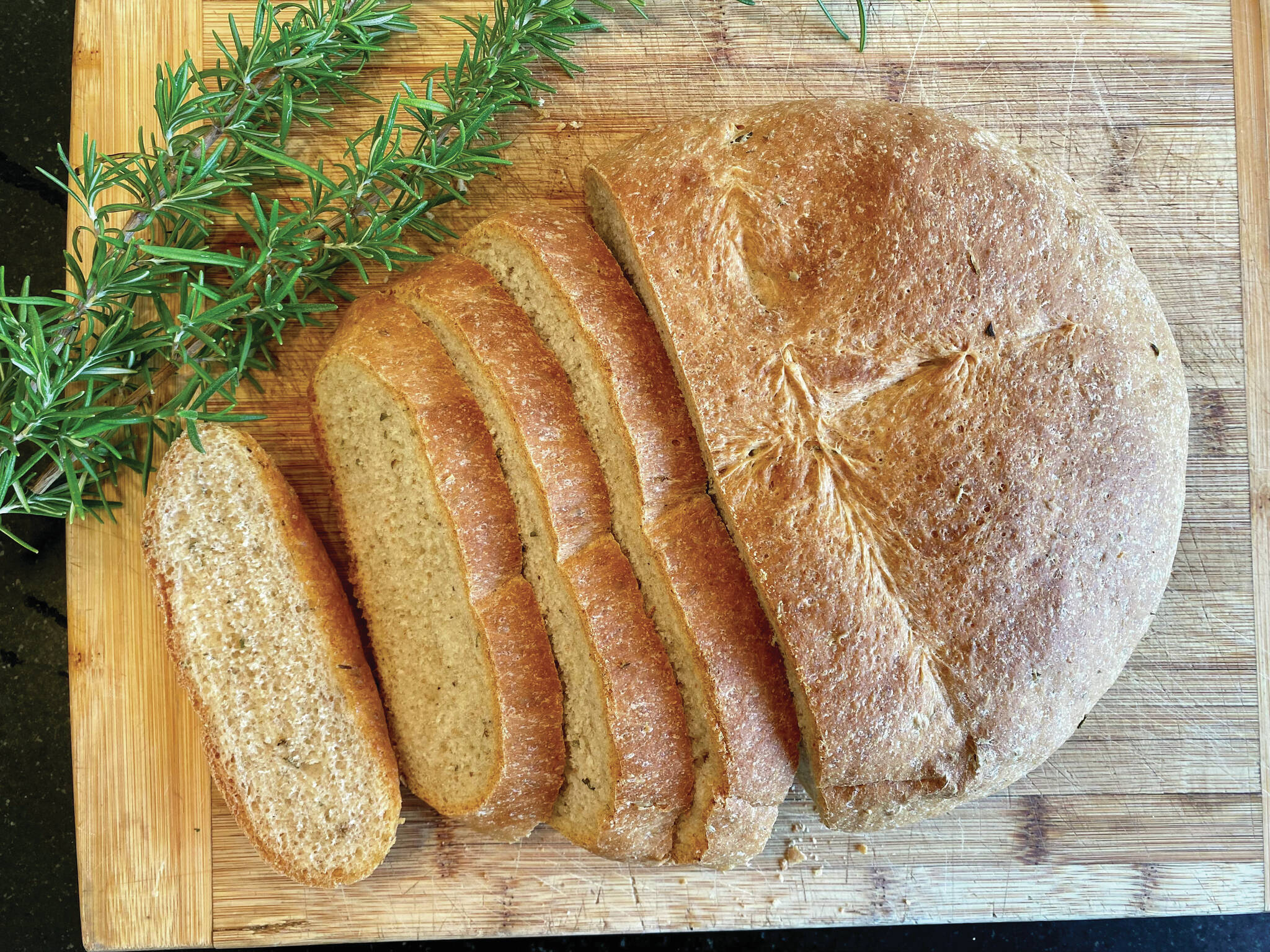For something so simple, bread sure is easy to ruin.
I’ve made easily a hundred loaves at home in my life, and every time the bread turns out different. I could follow the same recipe, measure my ingredients with painstaking accuracy, time my proofs and baking to the second, and each batch would still be different.
Bread is a living thing that must be cared for in just the right way, and any deviation from its preference of the day could result in failure.
You might lift the cover off your rising dough to find a deflated disappointment, like I have many times. You might slice into your golden loaf to find a dense, unpleasant brick instead of the fluffy cloud you were hoping for. Your loaf might even turn out perfect but stick to the pan and rip apart when removed.
Over time and through these errors you learn what to avoid, but even that knowledge is no guarantee when so much depends on the tiny creatures that bring your bread to life.
This weekend I made a loaf of rosemary bread to accompany a family meal of roast beef and homegrown potatoes and carrots. The recipe is solid, tried and true, and I even had the luxury of a quiet house free of the usual distractions, yet still when I lifted the cover to peek in on my rising loaf, I discovered it on the brink of disaster.
A warm kitchen had excited those little beasts and my bread rose much quicker than I expected. I hastily scored the top and whisked it into the oven, but the damage was already done, and I watched with helpless frustration as the loaf deflated in the oven — over proofed, but just barely.
Truthfully, the failure was only skin-deep, as the bread turned out chewy and fragrant despite my error and was gone by lunch the next day. The lesson learned from this mishap: perhaps on the bar, out of the sun filled kitchen, would be a better place to proof my bread.
This recipe uses a mixture of all-purpose and whole wheat flour which creates a satisfying texture and a rich flavor that complements the herbs.
Ingredients:
2 cups all-purpose flour
½ cup whole wheat flour
1 ½ teaspoons active dry yeast
2 tablespoon fresh rosemary, finely chopped
1 teaspoon dried oregano
¼ teaspoon black pepper
2 teaspoon kosher salt
3 tablespoons olive oil
1 cup warm water
3 teaspoons honey
Directions:
In a small bowl dissolve the honey in the warm water, then add the yeast, gently stir, and let sit until bubbly, about 10 minutes.
Sift the flours into a large mixing bowl, being sure to mix them thoroughly.
Add the salt, pepper, and herbs and mix again to combine.
Add the olive oil to the yeast mixture and gently stir, then add immediately to the flour.
Knead in the bowl until a ball forms, then turn out onto a clean counter and knead well. The dough should be smooth and springy when finished.
Lightly grease a large bowl with olive oil before placing the dough inside.
Brush the surface of the dough with a little olive oil, then cover and allow to rise until it has doubled, about 45 minutes to an hour.
Punch the dough down, reform into a ball, and place on a parchment-lined baking sheet. Cover with a large bowl and allow to double again, about 45 to 60 minutes.
Immediately before baking, use a very sharp knife to slice a cross across the top of the bread.
Place into a 375-degree oven for 40 to 50 minutes, or until the top is golden and you hear a hollow sound when you thump on the top with your fingers.
Allow to cool for 10 minutes before slicing.

